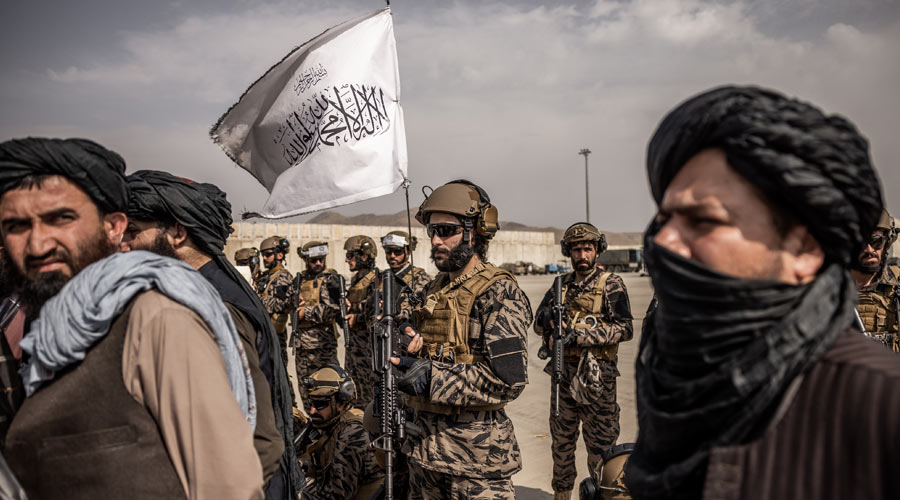As the Taliban acquired control of Afghanistan and the world saw flashes of Saigon in the messy American withdrawal, it didn’t take long for Afghanistan’s description as a graveyard of empires to re-enter the narrative.
Alongside, another group lost no time in dominating the chatter — the tribe of strategists. Where the ground is shifting, there is room to recommend short-term strategy, medium-term strategy and, when newsrooms hazard guess into the distant future, long-term strategy. Contemporary Afghanistan is strategy-packaged as a country.
It was its strategy of supporting the communist government that acquired power in 1978 that brought the erstwhile Soviet Union to Afghanistan the following year; it was competing Cold-War strategies that foiled its plans and forced it to leave in 1988, it was post-9/11 strategy and a world reduced to one superpower that brought the Americans to Afghanistan in 2001; it is diminished American strength and a world returned to competing superpowers that inspired their strategy of withdrawal in 2021. The ups and downs of this strategy-laden story ignore the more relevant constants in the background.
For instance, among recent news reports on Afghanistan, was the admission of the Taliban that their members aren’t trained to respect women. Everyone knew this from the past and from the spectre of people fleeing after the change of power in August. But said bluntly and publicly, it sat there like shocking dumbness awaiting legitimacy. Does a group that confesses to poor respect for women have the moral right to govern?
Before criticizing the Taliban, we must remember that marginalizing women is not an Afghan problem alone. The Taliban represent an extreme manifestation of the malaise. The same tendency, in varying shades, is present in multiple political formations worldwide. In many of these geographies, India included, the solution of the conservatives for women’s rights denied has been to enforce dress codes for women, monitor their mixing with men, and police their presence in public spaces.
This disregard for human rights does not seem to have bothered the Doha negotiations, which shaped the Taliban’s return. How could minds informed enough to evolve geo-political strategy miss such fundamental priorities? One reason may be this: in strategies around geo-politics, people (and women therein) are incidental occupants of prized geography. Afghanistan attracts because of its location.
The country’s predicament is what may be called the curse of the in-between. In ancient times, it was the route from Central Asia to India. In the days of the British raj, Afghanistan was the theatre of the Great Game, wherein Tsarist Russia and Britain engaged in shadow games; one to further its influence southward, the other to check it. Currently, Afghanistan is the strategic crossroad; the link converging China, Central Asia, South Asia, the Middle East and the Arabian Sea. Everyone intervenes for access to the different directions offered and, of late, the country’s resources, ranging from natural gas to iron ore, copper and lithium.
The problem with strategy is its nature. Unlike travellers, strategists rarely talk of the people. Worldwide, the likes of Afghanistan have been chess boards. As much as it is a graveyard of empires, Afghanistan is also a graveyard of strategies. The latter’s ruins as a distinct category escapes the world’s attention because for us on the outside, Afghanistan and strategy have always been one.
By definition, tactics and strategy are means to goals. Humanity’s goals are supposed to be humane. But today, thanks to the money and power in its corner, tactics and strategy are bigger schools of imagination, bigger businesses, than goals. Where strategies proliferate, goals remain elusive. That is why Afghanistan is a morass; a logjam of everyone’s self-serving strategies.
Delayed time and again, there eventually comes a point when it isn’t strategists who should walk a graveyard of empires but healers. As of mid-2021 and the sight of desperate people falling from planes later, that juncture is upon us. Bringing back the generals, security advisers and spies of the world to Afghanistan would merely mean old wine in a new bottle. They groomed and indulged militancy in Afghanistan as strategy and, finally, abandoned the country to a terrible armed militia. How can their tribe be the solution?
Afghanistan needs healers. Those who value the interests of Afghans and those of their country. The Great Game and other games have had their day.
Shyam G. Menon is a freelance journalist











